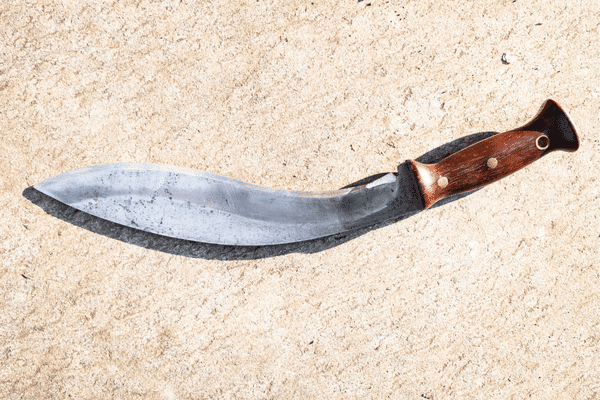Navigating the Legalities of Katana Ownership in the United States.
The katana, a symbol of Japanese martial arts and cultural heritage, has captivated the imagination of many individuals worldwide. Its sleek design, historical significance, and association with samurai warriors have made it a coveted object of desire. For those residing in the United States, the question of katana ownership often arises: Is it legal to own a katana in the US?
Federal Regulations and the Right to Bear Arms
The Second Amendment of the United States Constitution guarantees the right of individuals to keep and bear arms. This amendment has been interpreted to protect the ownership of various firearms, but does it extend to edged weapons like katanas? The answer lies in the distinction between firearms and other weapons.
Federal law generally does not regulate the possession of edged weapons, including katanas. However, some states have enacted their own laws regarding the ownership, carrying, and use of such weapons. These state laws vary in their specifics, but they generally fall into two categories:
Age Restrictions: Some states impose age restrictions on the purchase or possession of katanas. For instance, in California, individuals must be at least 18 years old to buy or own a katana.
Carrying Restrictions: Many states restrict the carrying of katanas in public places. In some jurisdictions, it may be legal to carry a katana openly, while others may require it to be concealed or transported in a secure container.
State-Specific Regulations: A Closer Look
To determine the specific laws governing katana ownership in your state, it is crucial to consult your local ordinances and statutes. Here's a brief overview of katana regulations in a few select states:
California: California has stricter regulations regarding the carrying of katanas in public. It is illegal to carry a katana openly in most public places, including schools, parks, and government buildings. However, it may be permissible to transport a katana in a locked trunk or container within a vehicle.
New York: New York has similar restrictions on the carrying of katanas in public. Additionally, it prohibits the possession of certain types of concealed-edged weapons, including straight-edged knives with blades longer than four inches and curved blades with blades longer than three inches.
Texas: Texas has relatively fewer restrictions on katana ownership. It is generally legal to own and carry a katana openly in public, provided it is not being used in a threatening or illegal manner.
Safety Considerations and Responsible Ownership
While the legality of katana ownership varies from state to state, it is essential to exercise caution and responsibility when handling such weapons. Katanas are sharp and potentially dangerous objects that should be treated with respect.
Here are some safety guidelines to consider when owning a katana:
Secure Storage: Store your katana in a safe, secure location, out of reach of children and unauthorized individuals.
Responsible Use: Only handle your katana in a safe and responsible manner. Avoid brandishing or swinging it in public or in close proximity to others.
Proper Training: If you intend to practice swordsmanship or martial arts involving katanas, seek proper training from a qualified instructor to ensure safe handling and usage techniques.
Conclusion: Respecting the Legacy of the Katana
The katana sword, with its rich history and cultural significance, deserves to be treated with respect and appreciation. By understanding the legal guidelines and practicing responsible ownership, individuals can enjoy the beauty and heritage of this iconic weapon while ensuring the safety of themselves and others.




Comments
Post a Comment